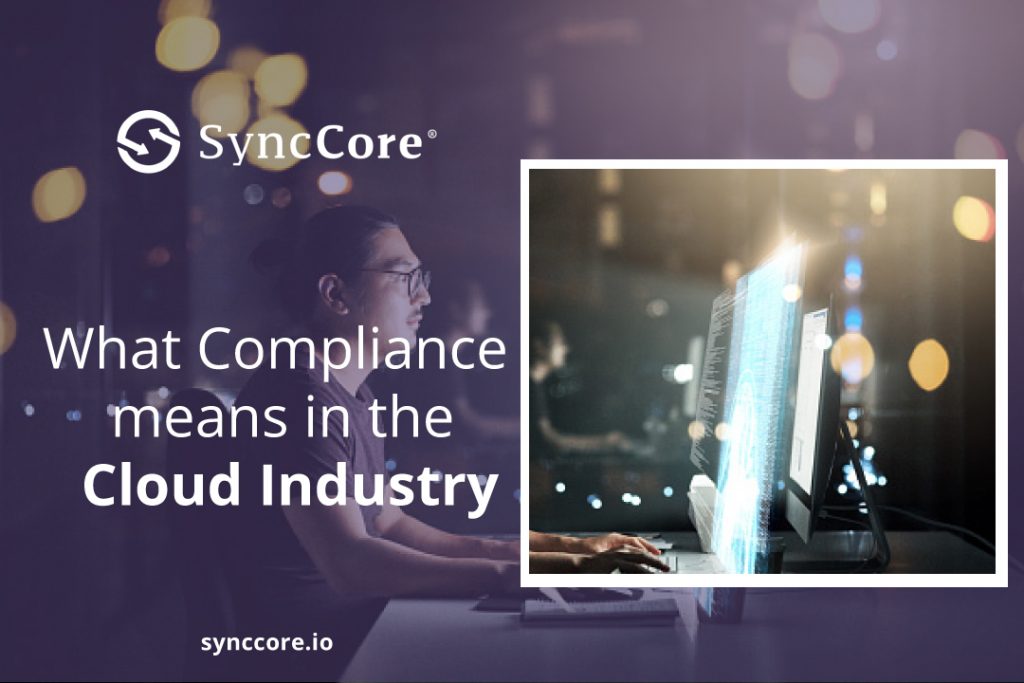
What Compliance Means in the Cloud Industry
Cloud compliance is about complying with the laws and regulations that apply to using the cloud. Most organizations are moving to the cloud because there are good business reasons. The law does not prevent the adoption of clouds. It does have, however, have a significant impact. When moving to the cloud, it is essential to know in which countries your data will be processed, what laws will apply, what impact they will have, and then follow a risk-based approach to comply with them. It can be challenging because there are many laws, like data protection laws, data localization laws, and data sovereignty laws. You also need to consider interception laws or access to information laws, enabling governments or others to access your data in the cloud.
Table of Contents
What Does Cloud Compliance Mean?
Cloud compliance is the general principle that cloud-delivered systems must comply with cloud customers’ standards. This is a crucial issue with new cloud computing services, and it is something that many IT professionals look at very closely. The main question that compliance and legal people would ask you is, Where will our data reside? Who is going to look after it? Who is going to be able to see it? Is it going to be the people that manage the infrastructure for us? Is it going to be internal or external people? And if we use a public cloud, how secure is that cloud platform for us? Is the cloud going to be segregated from other organizations’ data? The term ‘cloud compliance’ can relate to many different industry standards and regulations that cloud customers need to comply with.
Compliance In Action:
Compliance is when a company obeys the laws, regulations, guidelines, and specifications that pertain to its business.
Sarbanes-Oxley Act (SOX) of 2002:
SOX was validate in response to the influential Enron and WorldCom financial scandals. It’s meant to protect shareholders and the general public from accounting errors and fraudulent practices in the enterprise. The law sets rules on storing and retaining business records in IT systems, among other provisions.
Health Insurance Portability and Accountability Act of 1996 (HIPAA):
HIPAA Title II includes an administrative simplification section that mandates the standardization of electronic health records systems and provides security mechanisms to protect data privacy and patient confidentiality.
Payment Card Industry Data Security Standard (PCI DSS):
PCI DSS may be a set of policies and procedures created in 2004 by Visa, MasterCard, Discover, and yank specific to confirm the safety of credit, debit, and money card transactions.
Federal Information Security Management Act (FISMA):
Signed into law in 2002, FISMA requires federal agencies to conduct annual reviews of information security programs to keep risks to data at or below specified acceptable levels.
Cloud Compliance Tips:
Conduct a network security audit:
It is critical to audit your network security controls periodically. Network security audits help identify weaknesses in your network security posture, so you know where your security policies need to be adapted.
Conduct periodic compliance checks:
Your network firewalls square measure a crucial a part of several restrictive necessities. Ensuring that network firewalls comply with necessary regulations is a core part of your network security posture.
Consider micro-segmentation:
By building and implementing a micro-segmentation strategy, networks may be weakened into multiple segments and created safer against potential breaches by dangerous cybercriminals and hackers.
Periodically evaluate your firewall rules:
You should periodically evaluate your firewall rules. Identify and consolidate duplicate rules, take away obsolete or unused firewall rules, and perform periodic firewall rule re-certification.
SyncCore Cloud Solutions complies with all the regulatory rules and follows all guidelines to secure customers’ data and privacy. Visit us at https://www.synccore.io/ for more details or contact us at [email protected]
Read More: What is a Data Center?



